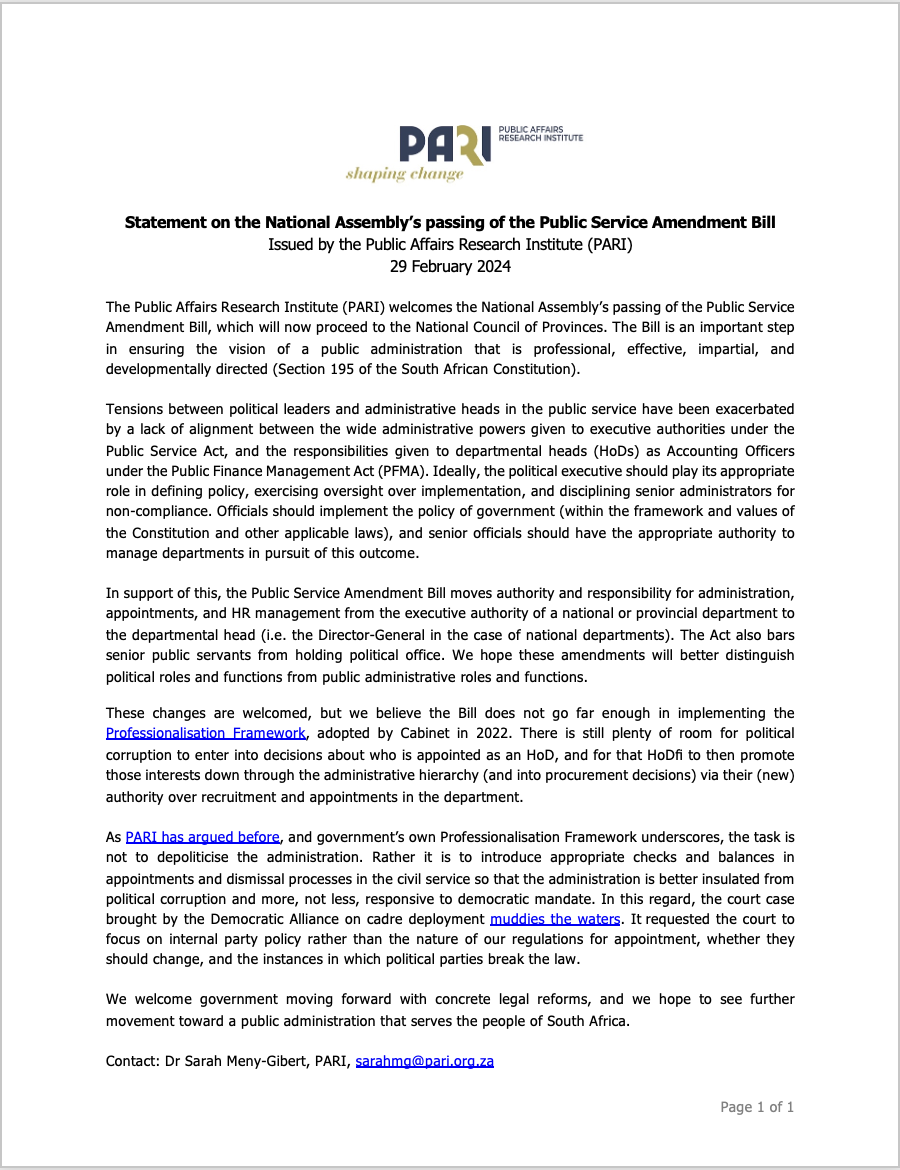Statement on the National Assembly’s passing of the Public Service Amendment Bill
Issued by the Public Affairs Research Institute (PARI)
29 February 2024
The Public Affairs Research Institute (PARI) welcomes the National Assembly’s passing of the Public Service Amendment Bill, which will now proceed to the National Council of Provinces. The Bill is an important step in ensuring the vision of a public administration that is professional, effective, impartial, and developmentally directed (Section 195 of the South African Constitution).
Tensions between political leaders and administrative heads in the public service have been exacerbated by a lack of alignment between the wide administrative powers given to executive authorities under the Public Service Act, and the responsibilities given to departmental heads (HoDs) as Accounting Officers under the Public Finance Management Act (PFMA). Ideally, the political executive should play its appropriate role in defining policy, exercising oversight over implementation, and disciplining senior administrators for non-compliance. Officials should implement the policy of government (within the framework and values of the Constitution and other applicable laws), and senior officials should have the appropriate authority to manage departments in pursuit of this outcome.
In support of this, the Public Service Amendment Bill moves authority and responsibility for administration, appointments, and HR management from the executive authority of a national or provincial department to the departmental head (i.e. the Director-General in the case of national departments). The Act also bars senior public servants from holding political office. We hope these amendments will better distinguish political roles and functions from public administrative roles and functions.
These changes are welcomed, but we believe the Bill does not go far enough in implementing the Professionalisation Framework, adopted by Cabinet in 2022. There is still plenty of room for political corruption to enter into decisions about who is appointed as an HoD, and for that HoD to then promote those interests down through the administrative hierarchy (and into procurement decisions) via their (new) authority over recruitment and appointments in the department.
As PARI has argued before, and government’s own Professionalisation Framework underscores, the task is not to depoliticise the administration. Rather it is to introduce appropriate checks and balances in appointments and dismissal processes in the civil service so that the administration is better insulated from political corruption and more, not less, responsive to democratic mandate. In this regard, the court case brought by the Democratic Alliance on cadre deployment muddies the waters. It requested the court to focus on internal party policy rather than the nature of our regulations for appointment, whether they should change, and the instances in which political parties break the law.
We welcome government moving forward with concrete legal reforms, and we hope to see further movement toward a public administration that serves the people of South Africa.
Contact: Dr Sarah Meny-Gibert, PARI, sarahmg@pari.org.za


